One of the country’s most iconic photographers, Dennis Morris was published on the front page of the Daily Mirror at just 11 years-old. He went on to document a relatively unknown Bob Marley from a 1973 UK tour – until his death in 1981, and was Sex Pistols’ most trusted photographer; needless to say, his career spiralled – photographing the likes of The Stone Roses, Radiohead and The Prodigy, and having his work published in Time, I-D, Vogue and the Sunday Times, to name but a few.
Growing Up Black is a powerful new book, published by Autograph ABP – in which Morris’ early photographs chart black Britain through the 60s and 70s. Having moved to Hackney, with his family, at 4 years of age, the book documents the lives of black people in his native Hackney and beyond, in a time that Morris has described as being full of vibrancy and hope. We caught up with Dennis to discuss his illustrious career, and the changing shape of culture…
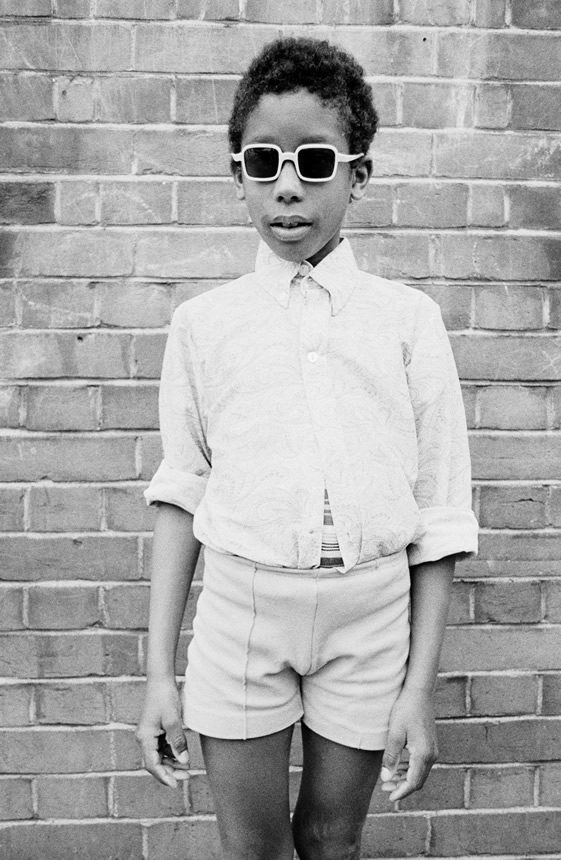
Dennis Morris, Dalston Boys. Downs Park Road café. Hackney 1975
© Dennis Morris
You began photography at such an early age – having your work published in the Daily Mirror at 11 – what sparked such an enthusiasm in a young boy?
I was quite a shy boy, didn’t quite fit in – but when I discovered photography, I found myself. The camera gave me confidence.
That image you sold to the Mirror was taken at Speakers’ Corner, what was your fascination with going there to take photos?
Every budding amateur/professional-to-be, goes to Speaker’s Corner. There are pictures everywhere, it’s full of eccentric characters – which is a photographer’s delight.
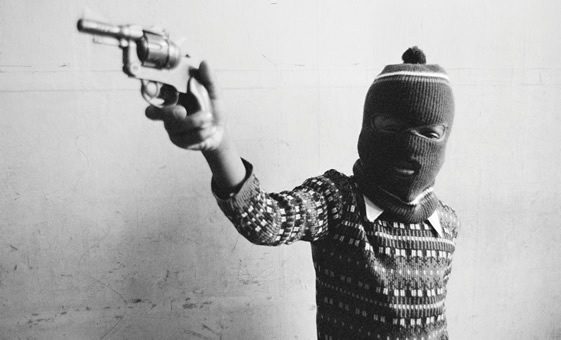
Dennis Morris, Young Gun. Hackney 1969
© Dennis Morris
There’s one particularly disturbing image of a masked kid with a gun. Through the power of the internet, I worked out you must’ve only been around 10 at the time – what was the story there?
This image proves the power of photography, and it was also a premonition of what was to come. Today guns are in the hands of young children in urban environments, and also in war-torn regions worldwide.
You’ve described growing up black in the 70s as a time of hope – how do you think it’s evolved, what do you think of Britain today?
I think this generation has lost focus… when I hear young black people calling each other the ‘N word’, I think back to the time of when I was growing up; it was one of the worst things someone could say to you. Now they use it against each other under the pretence of being cool (for want of a better word). How then can they justify being upset if it is used towards them by a white person?
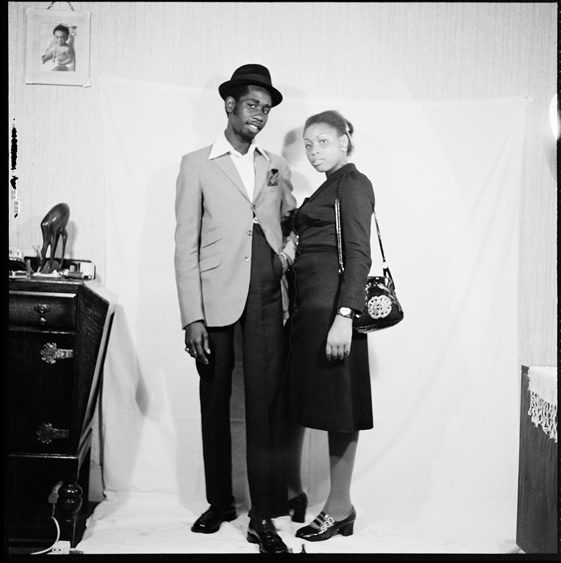
Dennis Morris, Home Studio. Hackney 1971 – 1975
© Dennis Morris
Your rock photography career famously began with Bob Marley taking you under his wing. You then worked with him until his death – what sort of impact did this have on you as a person, was he as emotive a character 24/7 as he was publicly?
Bob Marley had a huge influence on me. He gave me the confidence to be me, to be proud of my heritage; a sense of belonging. As a person, he was truly electric. A prophet, a poet, messenger… a complete one off. I could go on forever.
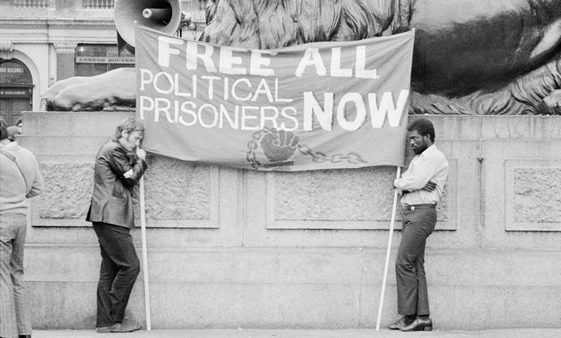
Dennis Morris, Anti-apartheid demonstration. Trafalgar Square 1971
© Dennis Morris
You then also became heavily involved in the punk scene. Do you think, like I do, that pop culture has become too gentrified, and worry that we’ll never see a movement that powerful again?
Punk was born out of the economic depression of the 70s, although the economy is in decline, it hasn’t quite reach tipping point yet.
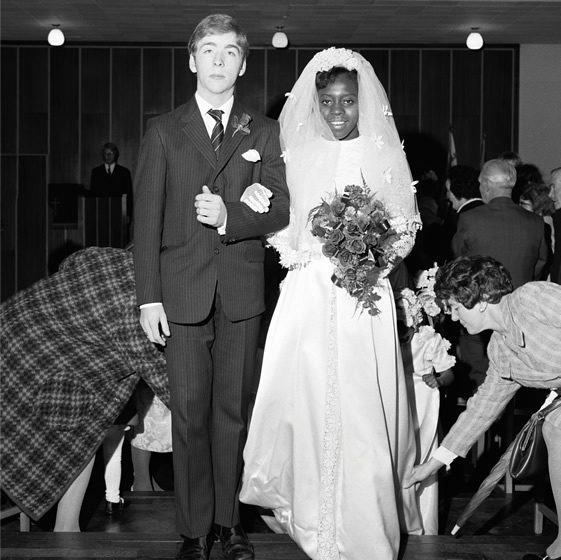
Dennis Morris, Wedding; Town Hall, Mare Street. Hackney 1971
© Dennis Morris
Have you gone digital?
I have gone digital, physical, political [smiles]… whatever it takes!!!! But I love film!
Thanks for your time Dennis, finally – is there any advice you would give to your 11 year old self, knowing what you know now?
I am happy where I am at!
Growing Up Black by Dennis Morris: A Chronicle of Black Britain in the 60s and 70s, published by Autograph ABP 2012








